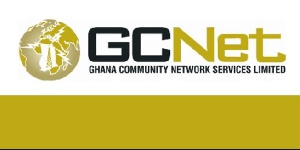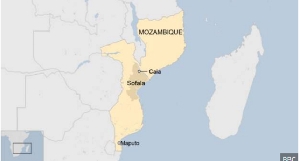Business News of Thursday, 12 March 2020
Source: thebftonline.com
Is Ghana really ready for foreign investors – The case of GCNet
But the ongoing effort to replace Ghana’s hugely successful national single window system for international trade facilitation (operated by GC Net and Customs World) with a new one – dubbed UNIPASS after the South Korean firm which is supposed to lead its implementation and management – could prove to be a disastrously expensive failed experiment. Simply put, the ongoing UNIPASS fiasco presents a clear and present danger to Ghana’s positioning as both a trade and investment hub in the sub region.
Having had its commencement postponed twice, since government announced its introduction in 2018, the embarrassing inability to implement it from March 1 this year, by its operators, has created deep uncertainty at Ghana’s sea ports and land border posts, as shippers and their agents have had to stay with the outgoing platform, with no idea as to when the new system will be up and running. For a shipping community already irked by the higher user tariffs they will have to pay, the actualization of their fears that the erstwhile smooth trade facilitation processes they have been enjoying since 2016, (when the single window system was first introduced) will be replaced by an untested and inefficient platform is highly worrying.
Opponents of the impending change point out that the new system hardly differs from the old one in terms of the nature and scope of the services, despite the identities of the operators. However, the major points of departure are the higher cost of the services to be rendered and the lower efficiency with which they will be delivered.
Revenue losses
The fee payable under the new UNIPASS system will be 0.75% of free on board (FOB) value. However, under the outgoing system total fees payable amount to just 0.68%, comprising 0.40% payable to GC Net and 0.28% payable to Customs World. Clearly, the incoming UNIPASS system will cost Ghana more than the outgoing Single Window system deployed by GC Net and Customs World.
The University of Ghana Business School’s survey reveals that Ghana saved some US$500 million in the first two years since the inception of the single window system it deployed in 2016. Evidently, introduction of the UNIPASS system will surely buck this trend.
Impact on Ghana’s image as major destination for Foreign Direct Investment
But perhaps, far more important than the negative effect on the quality of trade facilitation is the fact that the ongoing fiasco makes a strong case against Ghana as a destination for Foreign Direct Investment.
To accommodate the UNIPASS platform and its operators, the contracts of both GC Net and Customs World have been terminated. Here, defenders of government’s tack have come up with a curious argument that the changeover is in line with Ghana’s local content and participation policy.
They argue that Customs World is a foreign firm and GC Net is in part owned by Societe Generale de Surveillance (SGS) a Swiss company. But GC Net’s other shareholders are the Ghana Revenue Authority which is a state owned institution as well as GCB Bank, the largest indigenously owned commercial bank in the country and Ecobank Ghana which is listed on the Ghana Stock Exchange and thus part owned by Ghanaian equity investors.
Indeed, GC Net is Ghana’s trail blazing Public Private Partnership (PPP) and instructively, the one which established Ghana internationally as a preferred African counterparty for PPPs, based on its extraordinary institutional success over the past nearly two decades.
The termination of its contract in favour of a clearly less competent and more expensive replacement inadvertently sends out a message to the international investment community that perhaps Ghana is not such a favourable PPP counterparty after all.
It also amounts to unceremoniously kicking SGS out of the country’s trade facilitation activities after it has contributed pivotally to enhancing the efficiency of Ghana’s trade facilitation processes and generating unprecedented quanta of international trade revenue for the government, and this will not go down well with the international investment community.
Investments in innovation
Both companies have invested heavily in requisite processes and procedures. GC Net has invested some US$80 million over the 15 years it has been operating in Ghana, while Customs World (operating for most of its tenure here as West Blue Consulting) has invested some US$10 million since 2015.
GC Net in particular has drawn up lots of successes with regards to useful innovations.
These include its Ghana Customs Management System which expedites processing of all customs processes automatically; Ghana Integrated Cargo Clearance System which serves as a central hub for all players in the clearance value chain; the e-MDA portal which enables all Ministries, Departments and Agencies to issue licenses, permits and exemptions electronically; Letter of Commitment, which enables the Bank of Ghana and commercial banks to track foreign exchange payments for imports and forex earnings from exports; and the Ghana Single Window Application, an information tool to facilitate access to all sorts of trade related data by the trading community, among many other innovations.
Instructively, GC Net has won the applause of many business groupings in Ghana, such as the Association of Ghana Industries, the Ghana Importers/Exporters Association, the Ghana Union of Traders Associations and the Ghana Institute of Freight Forwarders.
Intriguingly, while the Ministry of Trade and Industry, claims that the introduction of UNIPASS is expected to make the Ghana National Single Window more comprehensive by providing a clearance management system, a cargo management system, an information management system and an administration system, all these functions are already available on the existing systems. These are the Ghana Integrated Cargo Clearance System (GICCS), the Ghana Customs Management System (GCMS), both on the GCNet platform, and the Pre-Arrival Assessment Reporting System (PAARS), the Customs House Agents Management System (CHAMS), the Joint Inspection Management Information System (JIMIS), and the Risk Management System (RMS) on the West Blue system.
Ramifications
All this makes for a clear case in favour of GC Net and by extension an equally clear case against Ghana as a worthy destination for FDI; while government’s supporters also argue that the country is already too well established as a preferred FDI destination for the UNIPASS fiasco to dent its image.
All this means the UNIPASS controversy is coming at a time when Ghana’s actual FDI inflows are not keeping pace with its economic growth, thus constraining, rather than boosting the country’s economic growth rate.
To be sure, this administration is looking to FDI to finance its ambitious industrialization agenda and it is pulling out all the stops to attract the investment needed. The priority this has been given is evidenced by the fact that President Nana Akufo-Addo is leading Ghana’s global marketing effort – personally leading trade and investment delegations to foreign countries that have been strategically selected for their potentials as sources of FDI.
Instructively, for the first time, the effort to secure FDI has been assigned to a full Ministry, under Business Development Minister, Dr Ibrahim Awal, himself a hugely accomplished investor; along with a revamped Ghana Investment Promotion Centre under the leadership of an accomplished investment banker, Mr Yofi Grant.











